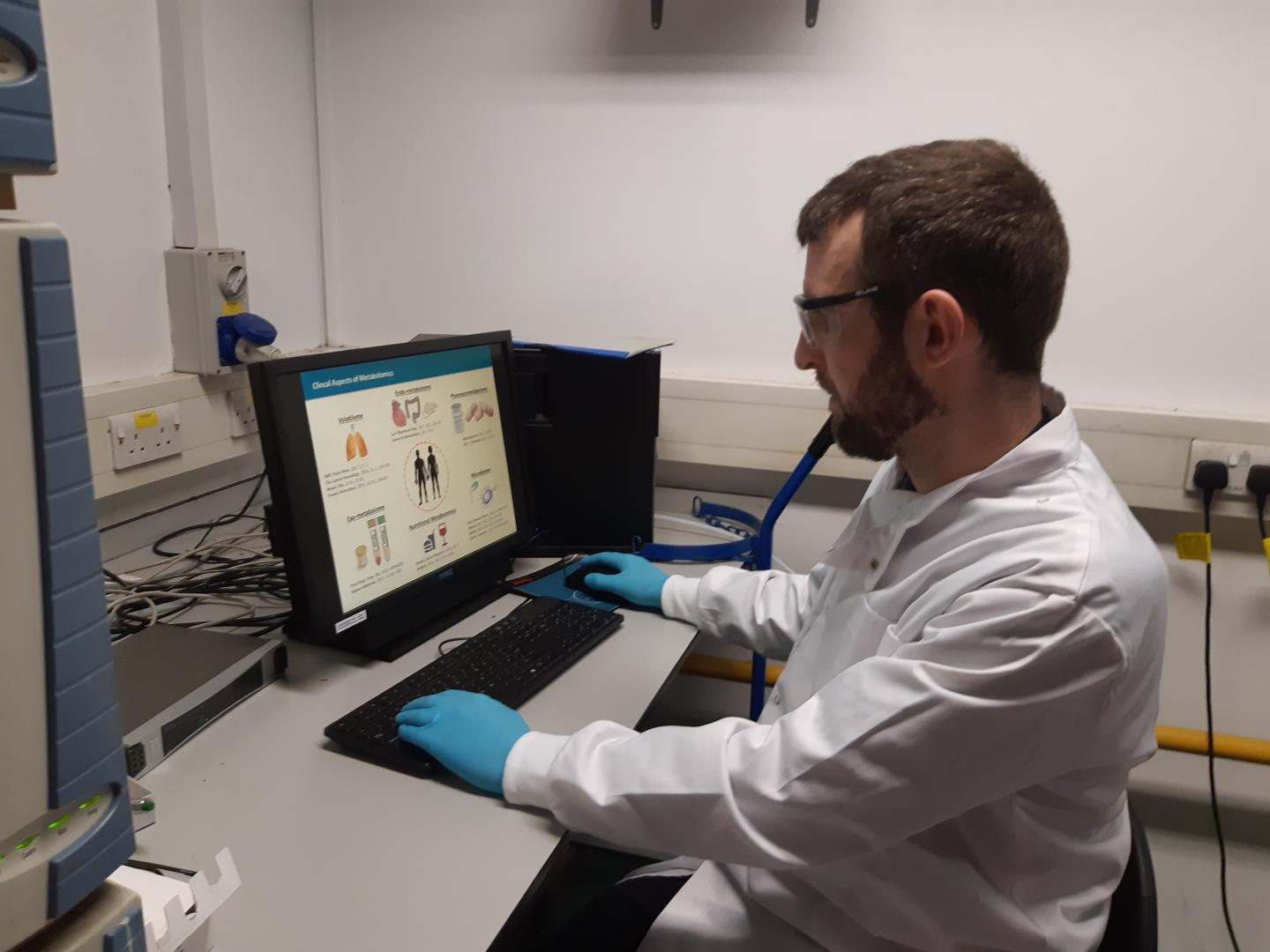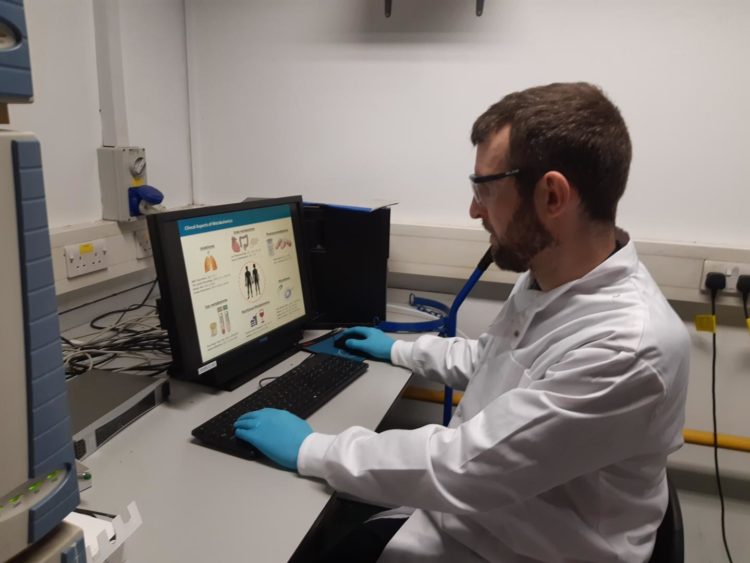
Credit: University of Strathclyde
Signs of frailty, and the risks it brings, could be identified in young and old people alike through a new assessment developed in a study led by researchers at the University of Strathclyde.
Increasing risk of frailty is a defining characteristic of the ageing process but it has no precise clinical definition and there are currently no analytical techniques that can accurately quantify its status.
Furthermore, little is known about the underlying biological mechanisms of frailty but the new research has revealed a set of blood biomarkers that can predict its extent. Further down the line, it could potentially achieve this with people as young as in their 20s or 30s.
The assessment could also determine whether a patient would be able to withstand intensive courses of treatment, such as chemotherapy, as well as helping to understand, prevent, cure or minimise age-related impairments.
The research also involved partners from the Universities of Manchester, Liverpool and Edinburgh and Yale University. It has been published in the journal Nature Communications.
Dr Nicholas Rattray, a Chancellor’s Fellow with Strathclyde Institute of Pharmacy and Biomedical Sciences, led the study. He said: “Being able to measure the frailty status of a person is currently a very subjective clinical assessment and is ultimately causing a delay in the personalisation of therapeutic options for frail patients.
“By using cutting-edge analytical techniques such as mass spectrometry based metabolomics, this research has opened the door to developing ways to rapidly and accurately quantify frailty and apply this knowledge directly within the clinical environment.
“We believe this assessment is the first of its kind. It could lead to a far deeper understanding of the ageing process and how to potentially develop intervention strategies for ageing poorly.”
Professor Roy Goodacre from the University of Liverpool said: “I am excited by this work as this shows that large-scale metabolomics has for the first time shown clear biochemical changes in people with frailty which may with future work lead to therapy to help revert these individuals back to a resilient phenotype which will improve quality of life.”
Professor James Nazroo, from the University of Manchester said “These crucially important findings pave the way for providing accurate diagnostic procedures for identifying risk of frailty, but also for understanding the mechanisms that lie behind that risk and the possibility of intervening to reduce risk and the negative consequences that follow from frailty.”
Professor Neil Pendleton from the University of Manchester said “identification of frailty is complex, requiring expertise not widely available. Using these findings could offer potential to expand opportunities for diagnosis when interventions are possible.”
Although there is currently no widely accepted clinical or biomedical definition of frailty, there exists a series of clinical scoring metrics, or frailty indices, which can help in the assessment of a patient’s resilience. They include measures of physical fitness, falls and fractures, vision, hearing, chronic diseases and depression.
The researchers analysed blood serum samples from 1191 people aged between 56 and 84 and followed up on 786 of the participants four years later. They weighed and identified molecules in the samples from the blood of 1200 elderly people, using machine learning to categorise bio-signatures of frailty.
A set of 12 metabolites – substances produced in metabolism – were identified and were found to differentiate between frail and non-frail people.
###
The research has been funded by the UK Medical Research Council.
Media Contact
Corporate Comms
[email protected]
44-014-154-82370
Related Journal Article
http://dx.





